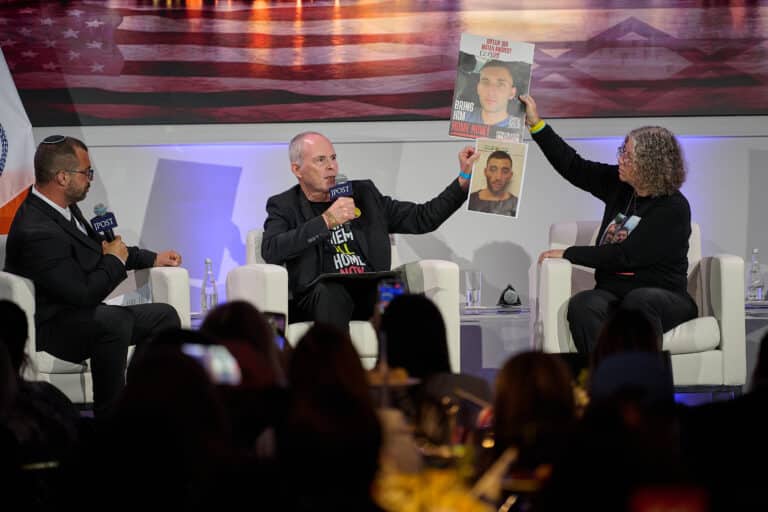
At the Jerusalem Post Conference in New York City, Hagay Angrest stood near the entrance holding a photo of his 22-year-old son, Matan Angrest, an Israeli soldier being held captive by Hamas.
“I hope President Trump will push for a deal,” Hagay told Unpacked. “My son is a soldier who was badly injured. He must get him back as soon as possible.”
Keith Siegel shares his hostage story
Wednesday’s conference lineup featured emotionally charged speeches from a variety of people, including freed hostages and political leaders.
Last year, Anita Siegel took the stage as a former hostage held by Hamas for 52 grueling days. This year, she was joined by her husband, Keith Siegel, who was recently freed after 484 days in captivity. The couple called for the immediate release of all remaining hostages and held up photos of those still in Gaza, including Matan Angrest.
Keith recounted the moment he was being freed, saying that he and Matan shared “the strongest hugs.” He then described to the crowd the nightmare of his time in captivity:
“It’s very hard to describe it in words, the experience, the horrors, the violence, the abuse, being in tunnels that we could hardly breathe, and feeling like death was close. Being left alone, no food, no water, no way of getting help if we needed it, and witnessing torture of other hostages, including women, witnessing sexual abuse of women, sexual verbal abuse.
“Just getting through the day is very challenging. I was held in captivity alone for six months, and no one to really share my difficulties, my hardships with. I was fortunate to be held with Matan Angrest for 67 days. We helped each other to get through the days.”
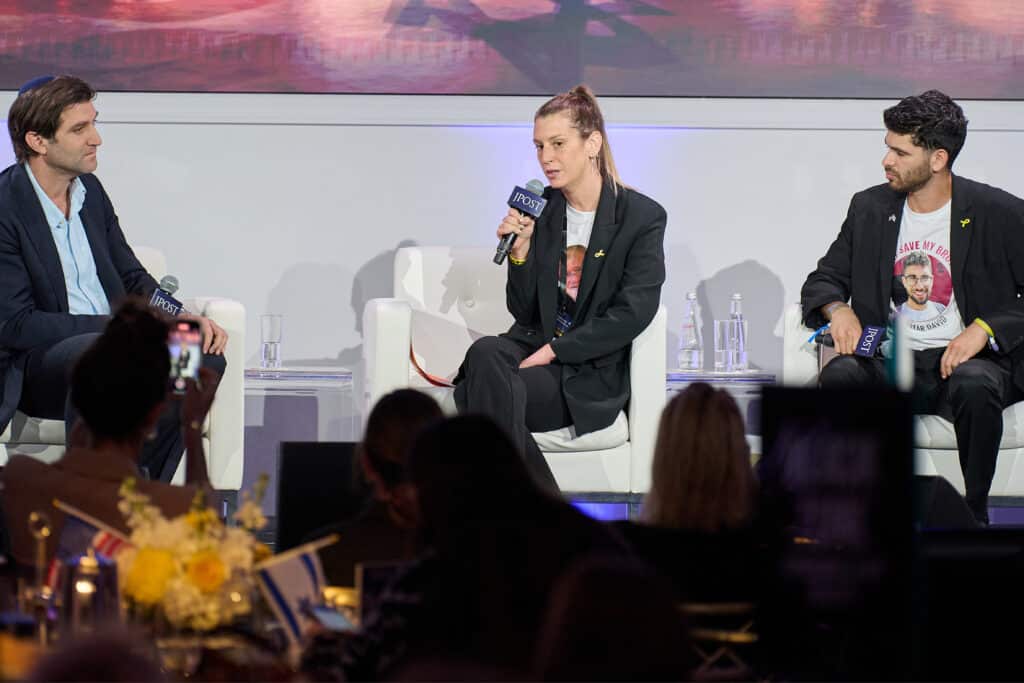
Hamas’ psychological torture with the hostages
In one chilling instance of psychological torture, Hamas filmed a video of hostages Evyatar David and Guy Gilboa-Dalal being driven to the location where others were being released. They were told they, too, would be freed — only to have the van door slammed in their faces and be taken back into captivity.
Evyatar’s brother, Eli David, described watching the tragic moment: “They saw freedom and then the terrorists shut the door on their faces, and they sent them back to the dungeon,” Eli said. “You could see the despair in their eyes. You could see the sorrow. You could see the pain.”
Gaya Gilboa-Dalal, Guy’s younger sister, shared the tragedy of their parents. Their mother managed to text her that Hamas had set their home on fire.
“They shot my father, and he died,” she said. “She managed to hide in the bushes for six more hours until her phone battery died. Ten days later, we received the official notification that she had also been murdered…Since then, we’re trying to live our lives and doing everything we can to bring the hostages home.”
Is Israel in a dangerous position?
Former Israeli Defense Minister Benny Gantz, widely seen as a contender for prime minister, described the challenges facing Israel. While some expressed concern that U.S. President Donald Trump had visited the Middle East last week but skipped Israel, Gantz was unfazed.
“I’m not too excited over a visit here or a visit there,” he said.
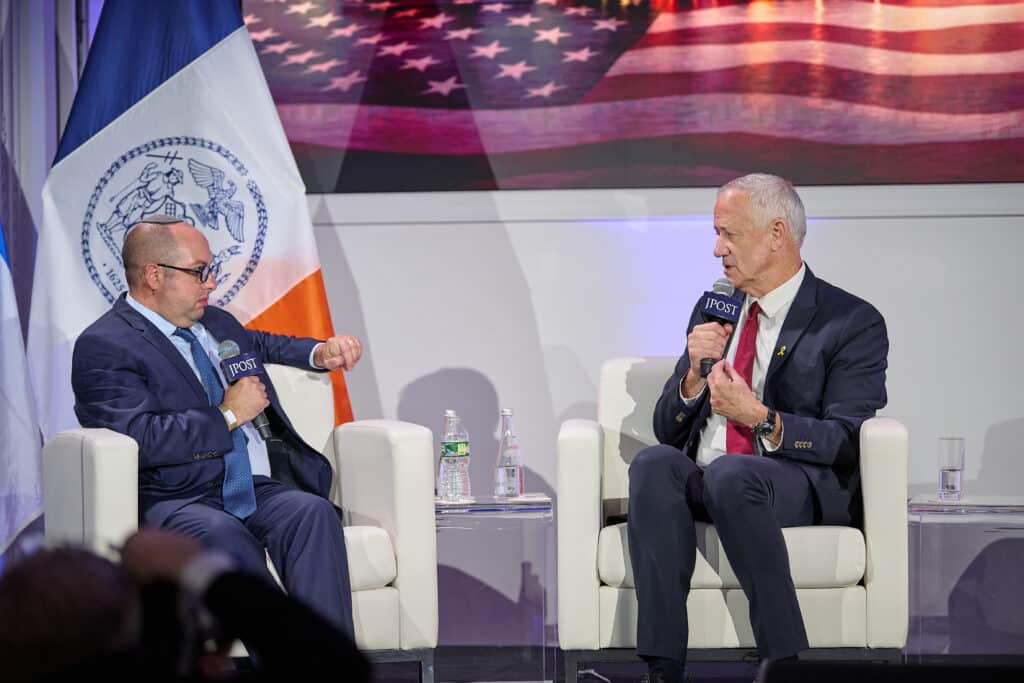
On the possibility of countries like Lebanon or Syria joining the Abraham Accords, Gantz said it was unlikely, but not impossible.
When asked about Israel taking control of Gaza, he was more vague.
“I think Iran is a global challenge,” Gantz said. We must make sure that Iran cannot continue to negatively influence this region and definitely not reach nuclear capacity…once this is neutralized, I think the future of Gaza has one condition, in the long run it cannot be Hamas and it shouldn’t be us, so it must be someone else.”
Pressed on who “someone else” might be, he didn’t say. But he emphasized that the hostages must be returned and the people of Gaza must be offered a future with hope and prosperity.
He also shared his frustration with those downplaying the Oct. 7 Hamas attacks, referencing the murder of his friend Ofir Libstein.
“They did not just murdered our people,” Gantz said. “They murdered in many ways, the future.”
Fighting antisemitism on the digital frontlines
Influencers Rudy Rochman, Lizzy Savetsky, and Zach Sage Fox joined a panel to discuss combating antisemitism online.
Rochman, an IDF soldier and activist once kidnapped in Nigeria, said antisemitism has never made sense, and never gone away.
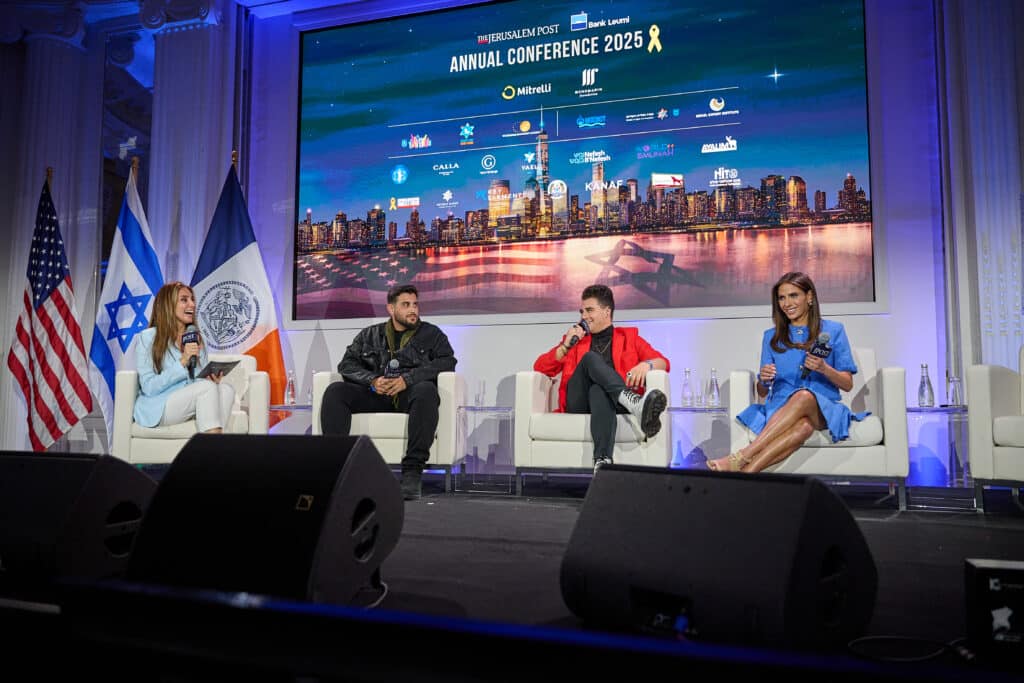
“We know that the world is against us,” said Rochman. “There’s a very unique type of xenophobia when it comes to the Jewish people. The far right thinks we’re the left. The far left thinks we’re the right.
“Any and every single side in history sees us as the source of the problem.”
He argued that when society turns on Jews, it’s a sign of a larger societal sickness.
“The Jewish people chose to be the world’s immune system,” Rochman said. “What happens when the immune system is not working. The body becomes sick.”
Fox praised Savetsky and Rochman for speaking out before October 7. He said he had once believed antisemitism was “in the rearview mirror.” But after filming in the West Bank and hearing only anti-Israel narratives, he realized the danger of a one-sided conversation.
Nuseir Yassin, known online as Nas Daily, is an Israeli-Palestinian influencer with over 17 million followers. He said introducing Israel to audiences who had never met a Jew was a calling.
“Introducing the concept of Israel to millions of people has been a job that I was born for and received an honorary doctorate from Ben Gurion University,” he said, adding that “the lack of somebody on the other side extending their arm” for peace was troubling but he said both people must find a way to try to work together.
Are we closer to a hostage deal?
While the release of hostage Edan Alexander sparked celebration, the fate of the remaining 58 hostages, including over 20 believed to be alive, remains a source of deep concern.
Adam Boehler, a former U.S. official involved in hostage negotiations, told the crowd he drew inspiration from Trump’s belief in direct engagement if it can help save lives. This move, directly negotiating with Hamas, has drawn criticism for cutting Israel out of the conversation.
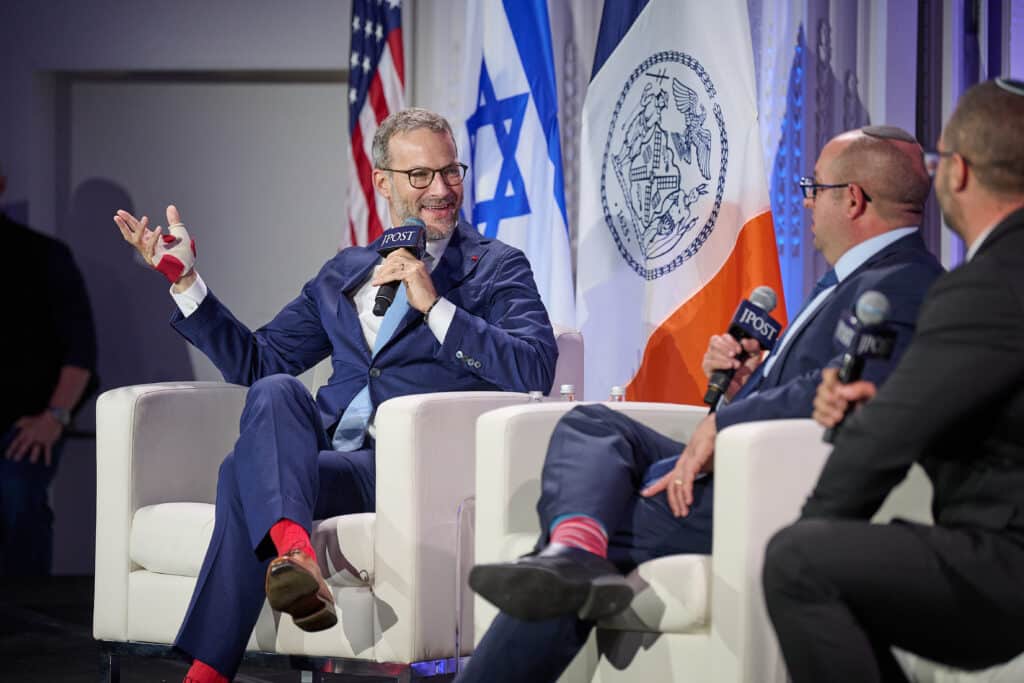
Boehler, however, stood by his decision, believing it was going to help move a deal forward.
“I do think we’re closer (to a deal) than we ever were, and part of that is because of movement that the IDF and Israel did on the ground,” Boheler said.
Regarding the obstacles stalling progress, Boehler was blunt: “I think the main force holding back the deal is Hamas.”
He also insisted that any agreement must ensure Hamas has no “immediate political future,” signaling that a long-term solution in Gaza would require new leadership.

